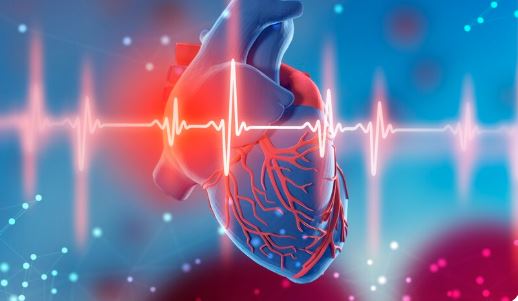The human heart is a complex organ governed by intricate electrical signals. For the heart to pump blood effectively and maintain a consistent rhythm, it relies on the proper timing and recovery of each heartbeat. One of the most crucial yet often overlooked aspects of this mechanism is the cardiac refractory period. A seasoned cardiologist understands how this period plays a vital role in preventing arrhythmias and maintaining the overall stability of the heart’s electrical activity.
In this article, we will explore what the cardiac refractory period is, why it is significant, how it impacts heart rhythm, and what it means for modern cardiac procedures, including Trans Catheter Aortic Valve Replacement, Transcatheter Aortic Valve Implantation, and the need for a TAVR expert in India.
What Is the Cardiac Refractory Period?
The cardiac refractory period is a critical phase in the electrical cycle of the heart during which the cardiac cells (myocytes) are unable to respond to a new electrical impulse. This pause is necessary to ensure the heart chambers contract and relax in a coordinated fashion. Without it, the heart could respond to random electrical signals, leading to irregular rhythms.
There are two types of refractory periods in the heart
- Absolute Refractory Period (ARP): During this time, no stimulus, no matter how strong, can initiate another action potential. This protects the heart from premature contractions.
- Relative Refractory Period (RRP): Following the ARP, there’s a brief phase when a very strong stimulus might provoke another heartbeat. This is when the heart is vulnerable to arrhythmias if improperly stimulated.
A skilled cardiologist evaluates the balance between these phases to diagnose and treat various rhythm-related disorders effectively.
Why the Refractory Period Matters?
The cardiac refractory period is essential for several reasons:
- Prevents Overstimulation: It ensures the heart muscle doesn’t get overstimulated by frequent impulses.
- Supports Rhythmic Pumping: The delay allows the ventricles enough time to refill with blood before the next contraction.
- Protects Against Arrhythmias: Most cardiac arrhythmias are linked to abnormalities in the refractory period.
A shortened or prolonged refractory period can lead to severe conditions like atrial fibrillation, ventricular tachycardia, or even sudden cardiac arrest.
Role in Heart Rhythm Disorders
When the refractory period is altered due to disease, medications, or surgical interventions, it can disrupt the regular rhythm of the heart. Common conditions associated with refractory period abnormalities include:
- Atrial Fibrillation (AFib): This irregular, often rapid heart rate is frequently associated with altered refractory periods in the atria.
- Ventricular Tachycardia (VT): This life-threatening rhythm occurs when impulses travel inappropriately through the ventricles, often due to damage or scarring.
- Torsades de Pointes: A specific type of ventricular tachycardia caused by prolonged refractory periods, often drug-induced.
For individuals with such rhythm issues, consulting a qualified cardiologist becomes crucial for timely diagnosis and intervention.
How Cardiologists Diagnose Refractory Period Problems?
A cardiologist may use several diagnostic tools to assess the cardiac refractory period and overall heart rhythm:
- Electrocardiogram (ECG): Measures electrical activity and detects prolonged QT intervals.
- Electrophysiology Study (EPS): Involves inserting catheters into the heart to measure exact refractory periods and locate abnormal pathways.
- Holter Monitor or Event Recorder: Used to track rhythm changes over 24 hours or longer.
By interpreting these tests, cardiologists can recommend therapies ranging from medications to interventional procedures such as catheter ablation or pacemaker implantation.
Also Read : Atrial Fibrillation And The Heart’s Rythm
Refractory Period and Valve Disorders
Heart valve disorders—especially aortic stenosis—can influence heart rhythm by putting extra stress on the cardiac muscle. Patients with aortic valve disease often experience rhythm disturbances like AFib or ventricular ectopy.
This is where advanced interventions like Trans Catheter Aortic Valve Replacement (TAVR) or Transcatheter Aortic Valve Implantation (TAVI) come into play.
The Role of TAVR in Managing Rhythm and Valve Disease
TAVR is a minimally invasive procedure used to replace a narrowed aortic valve without open-heart surgery. A diseased valve can disrupt blood flow, affect chamber pressure, and indirectly alter the refractory period of the cardiac muscle.
By restoring proper valve function, TAVR often stabilizes hemodynamics and improves heart rhythm over time. However, because this procedure can sometimes impact the heart’s conduction system, it must be performed by a TAVR expert in India who understands the electrical implications of valve replacement.
A well-trained cardiologist working in tandem with a TAVR specialist ensures that both the mechanical and electrical functions of the heart are optimized during and after the procedure.
Lifestyle and Medical Management
Alongside advanced procedures, managing the cardiac refractory period involves:
- Lifestyle changes: Reducing caffeine, alcohol, and stress can stabilize heart rhythm.
- Medications: Beta-blockers, calcium channel blockers, or antiarrhythmic drugs can help modulate electrical activity.
- Regular Monitoring: Ongoing follow-up with your cardiologist ensures early detection and intervention if refractory abnormalities arise.
When to See a Cardiologist
If you experience symptoms like:
- Irregular or rapid heartbeat
- Chest discomfort
- Shortness of breath
- Dizziness or fainting
it’s time to consult a cardiologist. These signs could indicate issues related to the refractory period or other underlying heart conditions that require professional care.
Read More : What Is a Normal Ejection Fraction by Age?
Conclusion
The cardiac refractory period is a crucial part of the heart’s electrical system, ensuring each heartbeat is timed perfectly for optimal function. Any imbalance in this process can lead to serious rhythm disorders. Advanced cardiac procedures like Trans Catheter Aortic Valve Replacement and Transcatheter Aortic Valve Implantation are often necessary for patients with structural heart disease and rhythm complications.
By consulting with a qualified cardiologist and working with a TAVR expert in India, such as Dr. C. Raghu, patients can achieve better heart rhythm, improved quality of life, and long-term cardiac stability.
Book an appointment with Dr. Raghu and his expert team today to evaluate your heart health and receive personalized guidance on managing your cardiac rhythm.

